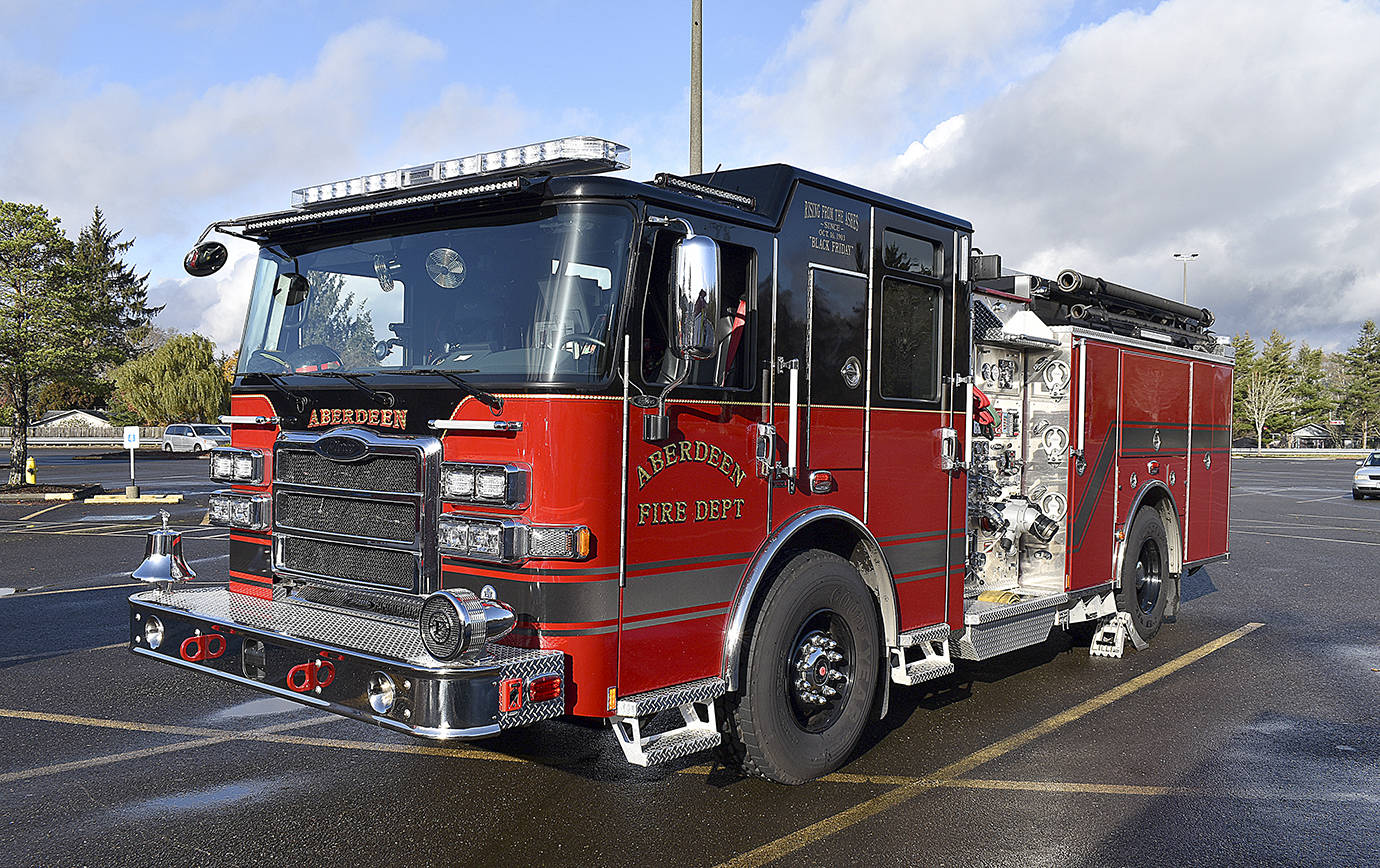Almost three years in the making, the final plan to combine the Aberdeen and Hoquiam fire departments into one regional fire authority was unveiled at a Hoquiam City Council workshop on Monday evening.
“Finally at the last meeting we approved the whole document,” said Hoquiam City Councilman Paul McMillan, one of three Hoquiam council members on the regional fire authority (RFA) committee.
Part of the unveiling Monday was the introduction of the logo for what would, if approved by voters, become the Central Grays Harbor Regional Fire Authority.
Aberdeen Fire Chief Tom Hubbard provided a timeline of the process so far: In September 2018, Emergency Services Consulting International was contracted to do a feasibility study of combining the two departments, something that had been discussed for years. The study was completed in October 2019. Development of the plan as it stands now began in June 2020 and was completed July 8.
The detailed plan includes 10 sections and deals with everything from funding to staffing, response time, call volume and many more details.
“What we’ve come up with is what will provide the best service to our citizens,” said Hubbard.
The plan will now go before both city councils for their approval. If approved, the plan will go before the residents of both cities for a vote in November. Because of the funding mechanisms used for the fire authority, it would need a 60% supermajority of the combined voters of both cities to pass.
Hoquiam Finance Director Corri Schmid went over some of those funding mechanisms on Monday, which include a new “benefit charge,” based on the square footage of buildings.
There will be a significant taxpayer cost for the operation of the RFA, something plan drafters say is offset by the addition of six new firefighters (two per shift), an administrative position, and a medical services officer for RFA ambulance services. That’s in addition to streamlined operations and other benefits making emergency services within the RFA’s jurisdiction more sustainable in the long term.
“One thing that was identified in the feasibility study is that both Aberdeen and Hoquiam are anemically understaffed,” especially if a major emergency were to happen that required a regional response, said Don Bivins, study project manager and consultant, who also worked on the South Beach Regional Fire Authority plan several years ago.
This will collectively increase the number of personnel that can respond to structure fires that occur within the jurisdiction, he said.
“There are significant economies of scale that can be gained by coming together,” said Bivins, including streamlining and standardization of EMS services, streamlining of response to significant events, savings on future apparatus purchases, and “increased sustainability for the organization going forward.”
Schmid provided examples to the council of the increased cost on property tax bills in Aberdeen and Hoquiam to fund the RFA with the new benefit charge — properties without structures would not see a benefits charge.
On the higher end of the property value scale, a 4,284 square foot home with an assessed value of $370,000 would see a property tax increase of about $745 a year. The same home in Hoquiam would see an increase of about $527 a year. All properties with structures would see significant tax increases annually.
“So the bottom line is everybody is going to wind up paying more for fire service,” said Schmid. “We always said we were going to be paying more, never said it was going to be less. We know this doesn’t look pretty, we’re realistic. This is a drastic increase to anyone’s budget.”
Bivins reiterated something he said years ago after the feasibility study was completed — that the study “identified both departments were not on a sustainable trajectory.” By not approving the costs related to the RFA, “we’re looking at higher staffing levels and you’re going to pay more in taxes anyway and lose the efficiencies gained by both cities working together” if the RFA is not approved.
If passed in November, the RFA would officially go into effect in July 2022. Taxes related to the RFA would not be collected until January 2023, said Schmid.
On Monday, the plan had yet to be presented to the Aberdeen City Council, which has three of its members on the board that approved the plan and which must also approve the plan for it to move forward.


